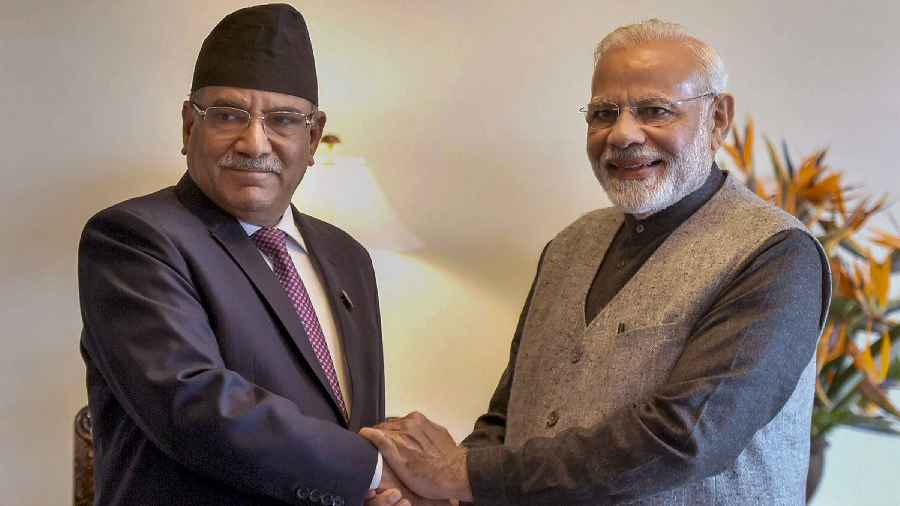Nepal has a new government led by old faces. The outcome, in all likelihood, will only be the instability and the uncertainty that have marked Nepal’s politics and that country’s ties with India in recent years. After the country’s national elections threw up a predictably fractured mandate, the ruling pre-election coalition of the Nepali Congress and the Communist Party of Nepal (Maoist Centre) collapsed. The Maoist party’s leader and former prime minister, Pushpa Kamal Dahal — better known as Prachanda — dumped the outgoing prime minister, Sher Bahadur Deuba, of the Nepali Congress and made peace with his long-time political adversary, K.P. Sharma Oli, of the Communist Party of Nepal (Unified Marxist-Leninist). Mr Prachanda and Mr Oli have teamed up with a rainbow coalition of smaller parties — representing everything from those practising non-ideological, anti-Establishment politics to the ones with monarchist views — to cobble together the numbers needed to form a government. On Monday, Mr Prachanda took oath as Nepal’s latest prime minister for the third time. He will lead Nepal’s 12th cabinet in the 14 years since the abolition of the monarchy in 2008. Unfortunately, that churn does not capture Nepal’s genuine hunger for change, since a familiar cast of characters, including Mr Prachanda, Mr Deuba and Mr Oli, has for the most part played musical chairs for the top job.
Running a complex coalition will not be easy even for a veteran like Mr Prachanda. Rabi Lamichhane, a former television anchor and political novice from the recently-formed Rashtriya Swatantra Party will be among his deputies. For India, political instability in Nepal will not be the only worry at the moment. While Mr Prachanda has maintained cordial relations with China, he has a strong working relationship with India that goes back several years. However, Mr Oli, who is expected to wield outsized, behind-the-scenes influence over Nepal’s new government, is not viewed by New Delhi as a trustworthy partner. India-Nepal relations plummeted both in 2015-16 and in 2018-21, the periods when Mr Oli was prime minister. Mr Oli’s stints in power saw border tensions and disputes rise, even as Kathmandu edged closer to Beijing. The survival of Mr Prachanda’s government will depend on his support. Yet, while Nepal’s new government must find a way to balance ties with India and China, New Delhi too must play a responsible role, offering what it can to strengthen democracy in its northern neighbour without interfering politically. It is an investment that will eventually pay dividends to both Nepal and India.











